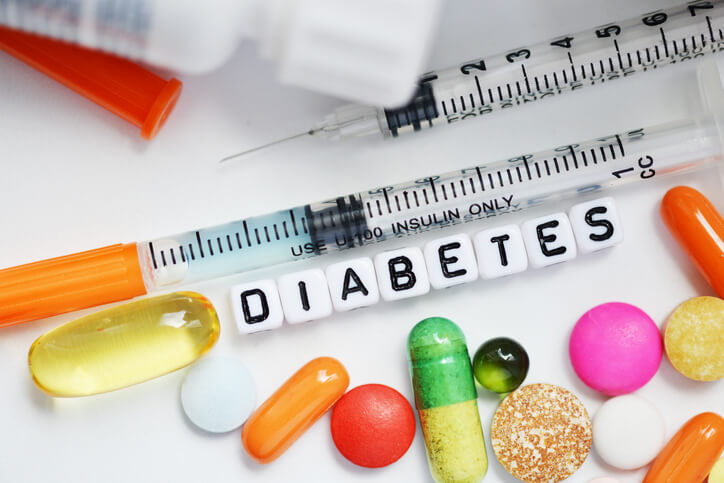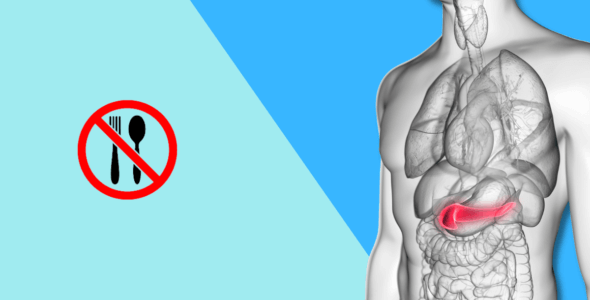Can you reverse diabetes?
Table of contents
Diabetes is a lifelong condition that can be significantly improved but not cured. You can reverse diabetes symptoms for some time, but there is always the chance they could return. Meal planning, healthy eating, exercising, and maintaining a healthy weight are essential to keep diabetes symptoms away. “Reverse” does not mean a forever cure. Diabetes is an ongoing disease.
Understanding blood sugar
As a person with diabetes, you know that your blood sugar level rises but you need to understand why that is. This is where insulin resistance comes in. Most people who develop type 2 diabetes have insulin resistance for years before they are diagnosed with diabetes itself. When you have insulin resistance your body needs to produce more insulin than other people to keep your blood sugar within the normal range. Your body reacts by overproducing insulin from the beta cells in your pancreas. This causes your body to eventually burn out with the extra demand placed on it. Eventually, your pancreas becomes less efficient to tackle insulin resistance and results in Type 2 diabetes.
If you have Type 1 diabetes you can not produce any insulin at all or very little.
Reversing diabetes with food
A diet that helps you manage or reverse your diabetes should be centered around:
- Healthy natural fats such as nuts, seeds, avocados, salmon, flaxseeds, and extra virgin olive oil
- Fewer calories, particularly from carbohydrates
- Lean protein such as chicken and turkey
- Minimal alcohol
- Minimal sweets/sugar
Ketogenic diets are sometimes useful to reverse symptoms of diabetes. Our other guides can teach you more about keto diets as well as alcohol consumption for diabetics. At NiceRx we want you to understand your condition and live the best life you can.
A calorie-controlled diet
Studies have found that nearly half the people who took part in a calorie-controlled diet reversed their diabetes. As a result, their blood glucose remained near the normal range for at least 6 months to a year. People who lost weight had lower levels of fat in their liver and pancreas, and for some of them that helped the beta cells in their pancreas that release insulin and control blood sugar to start working again.
In theory, losing weight is easy. Eat fewer calories than you use up, you lose weight. Losing weight is difficult for many reasons, but frustration by slow weight loss is probably the main reason. One way to keep yourself motivated is to focus your mind on the end goal – reversing your diabetes.
Exercise
There is a close link between a lack of physical activity and diabetes. At this point, you have probably already realized that successfully maintaining your weight loss requires a willingness to make exercise a regular part of your life. The best way to introduce exercise into your life is to go slow and steady. You need to select an activity that you enjoy and will continue to perform. If you are in good shape, moderate exercise could be a light jog. If you are out of shape, moderate exercise for you may be slow walking. Your choice of activity must take into account your physical condition. Here are some exercise ideas as a starting point:
- Walking – the most sustainable exercise as it requires no equipment apart from comfortable shoes
- Dancing – taking a dance class at a local community center or gym
- Swimming – low impact as it does not put pressure on your joints
- Yoga
A study carried out in 2003 provides evidence for the benefits of walking. It showed diabetic patients who walked at least 2 hours a week had a 40% lower death rate than inactive diabetics.
Tips to start walking:
- Find a walking buddy to make it fun
- Take a daily lunchtime walk
- Use the stairs instead of a lift
- Set a daily step goal
Movement of any type can improve heart function. In addition, it helps control body fat which is especially good for diabetic patients. Talk to your doctor before making a plan new exercise to make sure you come up with one that is suitable for you.
Will reversing diabetes with exercise work?
A study carried out in the UK called DiRECT (Diabetes Remission Clinical Trial) shows some people can put their diabetes into remission. The people in the study followed a low-calorie, diet-based, weight management program working closely with their doctor. After a year, 46% achieved remission to a non-diabetic state and off antidiabetic drugs.
There is a good amount of evidence from a number of scientific studies that show that low carbohydrate diets are an effective option for treating diabetes.
Other measures to reverse diabetes
Bariatric surgery
Bariatric surgery is thought to be the most extreme way to reverse diabetes. You may get to this point if you have found it impossible to lose weight or are extremely overweight. Bariatric surgery changes how much food your body can take in by adjusting your stomach and digestive system. After surgery, your stomach will be smaller, will feel full with less food, and fewer calories are taken in. Bariatric surgery is recommended for patients with type 2 diabetes and a BMI (Body Mass Index) of 40 or over by The American Diabetes Association. This BMI value will differ depending on your ethnic group and if you suffer from other health problems. You must make permanent healthy changes to your diet and lifestyle for the long-term success of bariatric surgery.
Fasting
Fasting to reverse diabetes is simply going without food for a set amount of time. You can choose to eat between a set window of the day. For instance, between 12-8 pm and no food for the rest of the day. You could also fast a full 24 hours without eating followed by 24 hours of eating as usual. There are many different methods of fasting. A very small study in 2018 found that going without food for a set amount of time can help reverse type 2 diabetes. Still, more research is needed.
Reversing diabetes FAQs
How long does it take to reverse Type 2 diabetes?
As soon as possible after you are diagnosed start a weight loss plan. Success in reversing diabetes is seen particularly in those people who have had diabetes for a shorter amount of time.
Which medications are used to treat Type 2 diabetes?
Some of the most popular drugs that are used to treat Type 2 diabetes include:
Can walking cure diabetes?
Walking can not cure diabetes but can help keep your weight down. As a result, your diabetes symptoms and your quality of life will be improved.
Is fasting good for diabetes?
A study looked at three people with type 2 diabetes who used insulin and fasted three times a week. Within a month, insulin was no longer needed by these people. The sample size is far too small to make any strong conclusions. It is important to remember that fasting can reduce your calories and improve your diabetes. Fasting causes changes in your blood sugar levels. As a result, you need to work closely with your healthcare professional to find what works for you.
How much water should a diabetic drink?
Drinking water is important for everyone, particularly if you are diabetic. Water has many jobs in the body. One of them is to flush waste products out of your body. When you don’t drink enough water, the glucose in your bloodstream becomes concentrated leading to higher blood sugar levels. Even slight dehydration can affect you if you are diabetic. The U.S Dietary guidelines 2020-2025 do not recommend a specific daily water intake but do recommend plain water over added sugar varieties. Water intake varies greatly according to age, activity, and various individual factors. As a guide The Institute of Medicine suggests men drink about 3 liters of water a day and women 2.2 liters a day.
How much weight do I need to lose to reverse Type 2 diabetes?
There is no set amount of weight that guarantees the reversal of type 2 diabetes. Every person is unique so it is very specific to you. Weight loss and diabetes improvement go hand in hand as shown in many studies.
Medically reviewed
A medical professional has reviewed this article.


Jamie Winn, PharmD
Jamie Winn, PharmD
Dr. Jamie Winn received his Doctor of Pharmacy in 2002 from the University of South Carolina College of Pharmacy, Columbia, SC. Jamie is a medical reviewer for NiceRx.






